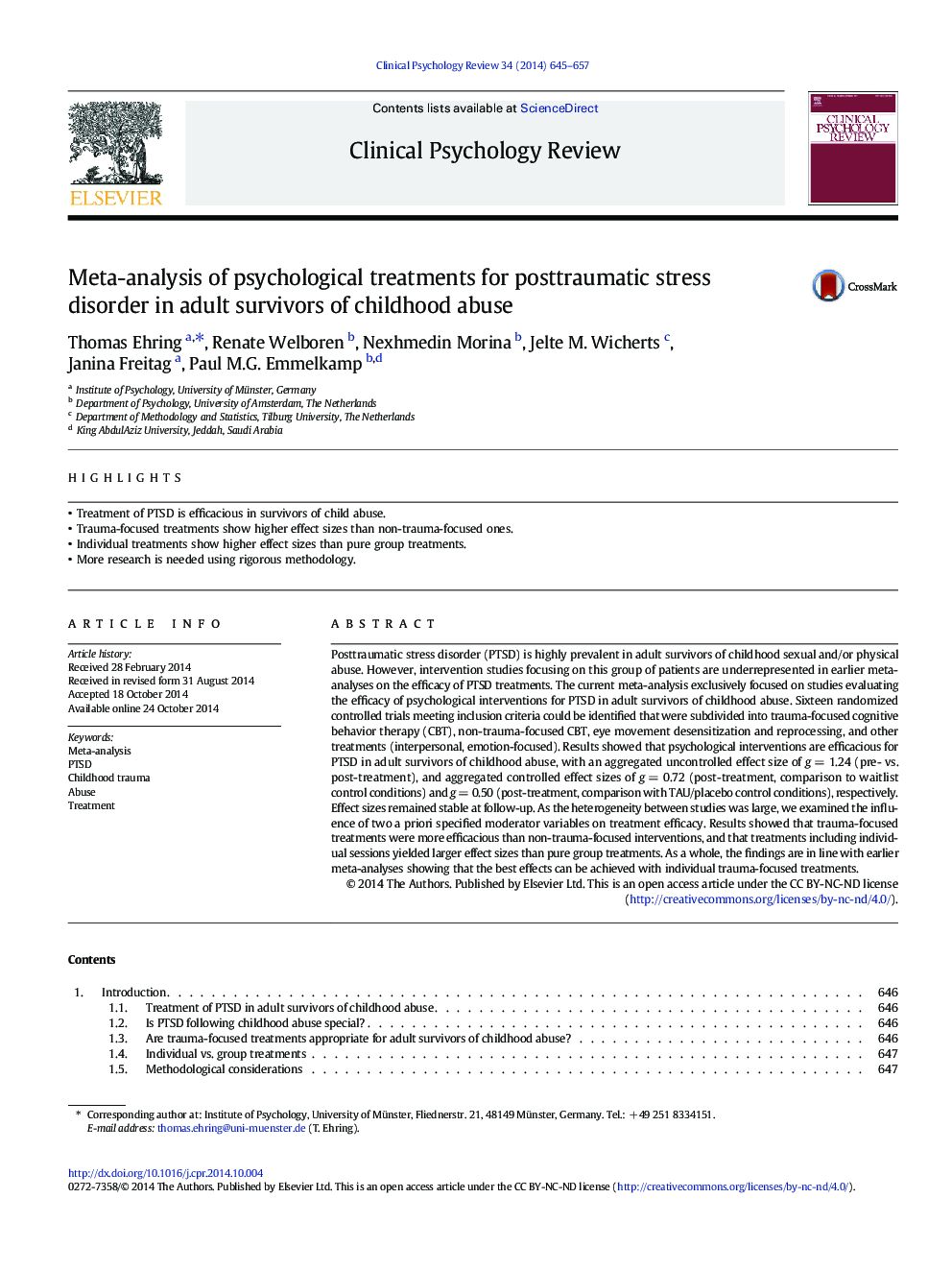| Article ID | Journal | Published Year | Pages | File Type |
|---|---|---|---|---|
| 10445691 | Clinical Psychology Review | 2014 | 13 Pages |
Abstract
Posttraumatic stress disorder (PTSD) is highly prevalent in adult survivors of childhood sexual and/or physical abuse. However, intervention studies focusing on this group of patients are underrepresented in earlier meta-analyses on the efficacy of PTSD treatments. The current meta-analysis exclusively focused on studies evaluating the efficacy of psychological interventions for PTSD in adult survivors of childhood abuse. Sixteen randomized controlled trials meeting inclusion criteria could be identified that were subdivided into trauma-focused cognitive behavior therapy (CBT), non-trauma-focused CBT, eye movement desensitization and reprocessing, and other treatments (interpersonal, emotion-focused). Results showed that psychological interventions are efficacious for PTSD in adult survivors of childhood abuse, with an aggregated uncontrolled effect size of g = 1.24 (pre- vs. post-treatment), and aggregated controlled effect sizes of g = 0.72 (post-treatment, comparison to waitlist control conditions) and g = 0.50 (post-treatment, comparison with TAU/placebo control conditions), respectively. Effect sizes remained stable at follow-up. As the heterogeneity between studies was large, we examined the influence of two a priori specified moderator variables on treatment efficacy. Results showed that trauma-focused treatments were more efficacious than non-trauma-focused interventions, and that treatments including individual sessions yielded larger effect sizes than pure group treatments. As a whole, the findings are in line with earlier meta-analyses showing that the best effects can be achieved with individual trauma-focused treatments.
Related Topics
Health Sciences
Medicine and Dentistry
Psychiatry and Mental Health
Authors
Thomas Ehring, Renate Welboren, Nexhmedin Morina, Jelte M. Wicherts, Janina Freitag, Paul M.G. Emmelkamp,
